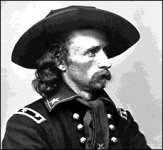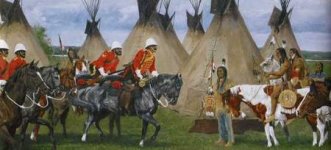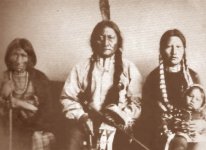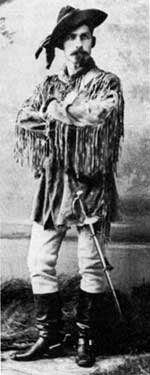Louis Badolato
Lieutenant General
- Joined
- Apr 25, 2005
- Messages
- 18,442
As I have stade elsewhere on another thread, Custer did have political ambitions, (sorry Maddadicus, but it is necessary to understand this,) and needed a major achievement to grab the headlines and reinstate his reputation damaged by the Indian Agency enquiry. Within the regiment the officers had settled in to two factions, pro and anti Custer. Reno and Benteen fell into the latter category. Because of this Benteen was sent off on a pointless sweep which would deny him any part in the glory and reno was sent to make first contact and draw off the warriors. custer meanwhile would cut round to the rear, capture the women and children, then charge through the village to take the warriors in the rear and "rescue" Reno, thus enhancing his own part while Reno would appear somewhat inadequate in needing help to do his.
Despite all the hype in the newspapers, largely written by Custer himself, he and the 7th were not the great Indian fighters they were portrayed to be. there had been one major action, the attack on a sleeping village at Wa****a, and a lot of fruitless pursuits with very little actual contact. Because of this Custer was convinced that the Indians would always run and when he found that on this occasion they were not only prepared to stand, but also positively eager to fight he was completely out of his depth. Nothing in his limited experience had prepared him for this, and the Indians came boiling out like gangbusters and overwhelmed his command in very little time. The limited number of 0.45 catridge cases found on the battlefield indicate that the troops barely had time to use their pistols, let alone reload them.
Benteen was right to stay with Reno, whose command had been badly battered. Had he left and tried to find Custer, whose exact position was unknown would have exposed both commands to being destroyed piecemeal, and to have taken reno with him would have meant abandoning the wounded, which was unthinkable.
Custer had spent all his military life puffing himself up to be a great military leader and tactician. His biggest mistake was that at the end he actually believed his own B. S.
Trooper, your post reflects my own study of the subject. The only thing I would add is that because of the fruitless pursuits in the immediate past, Custer was convinced that the Indians would always run, and, as you noted, this was a substantial factor in his decision to split his command - he wanted to prevent yet another escape, when this time, the Indians had no intention of running.





